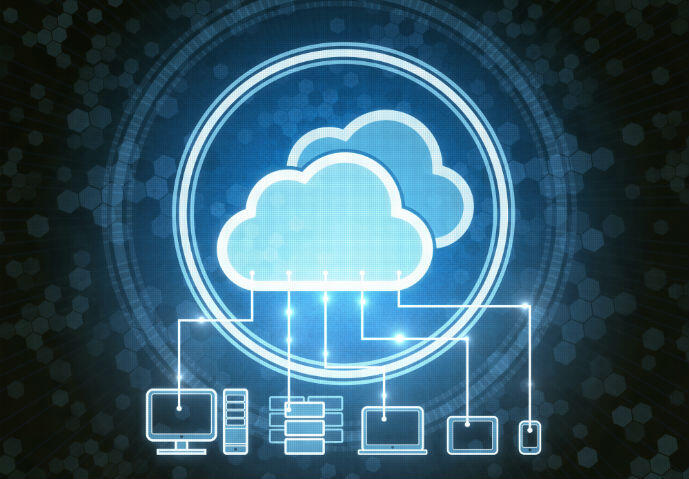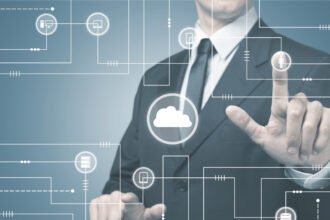From businesses to cars, many industries are constantly striving to improve their efficiency in how they run their corporation. One specific route in which industries are hoping to accomplish this is by investing in newer technology, updating software, and advancing their security programs. With all the changes in the technological field, cybersecurity is a necessity that is getting harder and harder to ignore. For the technology industry, hybrid cloud computing and fog computing are two of the better known solutions protecting against cyber attacks. Hybrid cloud solutions are able to accelerate app development, test new and old applications in the cloud faster, and enable consistent developments across a spectrum of clouds. Cloud management solutions can help optimize every aspect of public, private, and hybrid clouds.
Hybrid Cloud Computing
Hybrid cloud computing is best known for connecting two or more devices and allowing them to work together. Cloud computing uses the internet as a route to deliver data, applications, videos, pictures, and more to data centers. Cloud computing is also equipped to work with Internet of Things capable devices to increase efficiency in everyday tasks. IoT is able to generate large amounts of data and cloud computing provides a path for the data to travel on to its destination.
Cloud computing solutions have the ability to increase speed and agility as it makes resources available to developers. It also provides users with the ability to save money when operating data centers and use their applications outside of the office. One clear benefit of hybrid cloud computing is having a private infrastructure that’s directly accessible and that is not pushed through the public internet. This greatly reduces the access time in comparison to the cloud services used by the general public.
Fog Computing
Fog computing, also known as edge computing, facilitates the operation of compute, storage, and networking services between end devices and cloud computing data centers. It is another way to gather and process data at local computing devices instead of in the cloud or at a remote data center. Fog computing uses sensors and other connected devices to send data to a nearby edge computing device. It is considered a gateway device, like a switch or a router, that is able to process and analyze the data. By using fog computing solutions, a business’s cybersecurity is enhanced through the reduction of the amount of data being sent into the cloud, thereby reducing the threat and attack surfaces of IoT networks.
A study done by Business Insider’s research team stated that 570 million devices in 2015 used fog computing. It is expected that by the year 2020 that number will raise to include up to 5.8 billion IoT devices. Many IoT devices don’t have their own computing powers. Fog computing provides a better way than cloud solutions do when it comes to collecting and processing data from these devices.
What’s the Difference?
Cloud computing solutions work as a group of computers and servers connected together using the internet to create a network. With the amount of data that is being produced daily, a large portion of it needs to be easier and quicker to access. This is where fog computing can come into play. Fog computing solutions manage certain application processes or services at the edge of the network by a smart device as opposed to traditionally managing these systems in the cloud. It can be considered as a middle layer between the cloud and the hardware used to enable more efficient data processing, analysis and storage. This is achieved by reducing the amount of data that needs to be transported to the cloud.
Making the switch between hybrid cloud computing and fog computing requires a high-speed network with the ability to accomplish real-time data transmission and program different devices. A programmable device allows the user to develop proprietary applications that are able to filter out unnecessary data. The smaller the data packets, the faster data can be transmitted. These smaller packets allow faster transmission to the analytics engines and able to send data using mesh networking technology proven to provide greater and stronger security.
Conclusion
In industries and businesses where even milliseconds are vital, certain processes and programs tend to move away from the Cloud towards fog computing. This shift can save money, time and space. The Cloud is secure, but is still known to be capable of security breaches. Understanding this vulnerability, industries have shifted from hosting all their data and analytic tools through the cloud to the process of fog computing and using sensors and devices that are already equipped with security.







